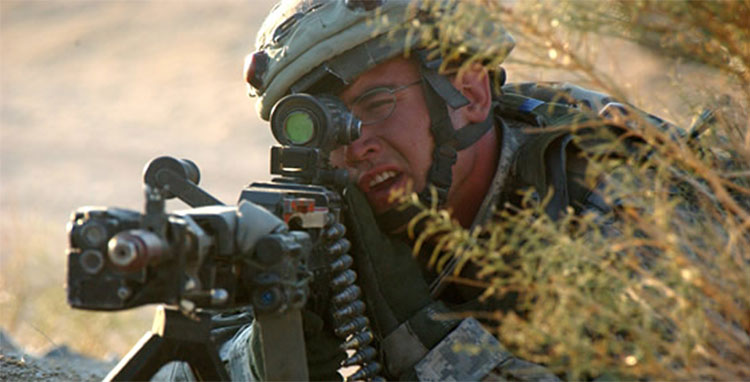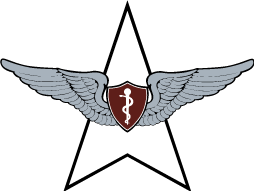USAARL, NICoE Determine Return-to-Duty Success

Posted July 17th, 2018
Story by: Catherine Davis, USAARL Public Affairs Officer and Dr. Amanda Kelley, USAARL Research Psychologist
FORT RUCKER, Ala. – Over the past two decades, military operations have resulted in significantly higher rates of traumatic brain injury among Soldiers. The most common are mild forms of TBI, which are more difficult to diagnose.
Many clinical assessments are available to determine the presence and severity of symptoms following TBI, or concussion. However, the Army currently lacks military-specific assessments to help clinicians determine if a Soldier can safely and effectively perform his/her duties following a concussion. To address this gap, the National Intrepid Center of Excellence Intrepid Satellite-III developed the Military Functional Assessment Program to help clinicians determine Soldier readiness to return to duty following mild TBI. The program consists of 10 tasks, adapted from the Soldier's Manual of Common Tasks, in which an individual's performance of the tasks is rated by a non-commissioned officer, physical therapist, mental health specialist, and occupational therapist.
According to NICoE ISIII, testing a Soldier's performance of military-specific tasks in a realistic setting is necessary to predict return-to-duty readiness. Specifically, military and clinical professionals can better determine a Soldier's ability to function while under the pressure of realistic environmental stressors that are similar to actual combat scenarios–elements that can significantly impair performance not otherwise captured by traditional clinical assessments.
In order to gain more knowledge about the program, the U.S. Army Aeromedical Research Laboratory collaborated with NICoE ISIII to evaluate the MFAP and determine whether Soldier performance was related to clinical assessments as well as occupational success at 6- and 12-months following completion of the MFAP.
During the USAARL-NICoE ISIII study, U.S. Army Soldiers, undergoing TBI treatment, completed the MFAP assessment. MFAP assessment data, individual task ratings, overall ratings, and return-to-duty recommendations/ determinations were analyzed by USAARL.
At 6- and 12-months after MFAP completion, the volunteer study participants completed a survey of occupational success and satisfaction. The survey was used to assess each participant's perceptions of his/her own occupational performance and degree of satisfaction with his/her progress after returning to duty.
The results of the study showed that performance on the MFAP tasks often related to outcomes from clinical assessments. The study results also indicated that overall MFAP scores were related to perception of performance and return-to-duty satisfaction 6- and 12-months following MFAP completion, such that participants who performed well on the MFAP tended to report higher perceptions of performance and satisfaction.
This joint USAARL-NICoE ISIII study suggests that while the MFAP can better determine a Soldier's ability to function while under the pressure of realistic environmental stressors, the MFAP may also be an effective tool for helping military and clinical professionals predict a Soldier's perception of occupational performance, and return-to-duty satisfaction and success months after returning to duty.













